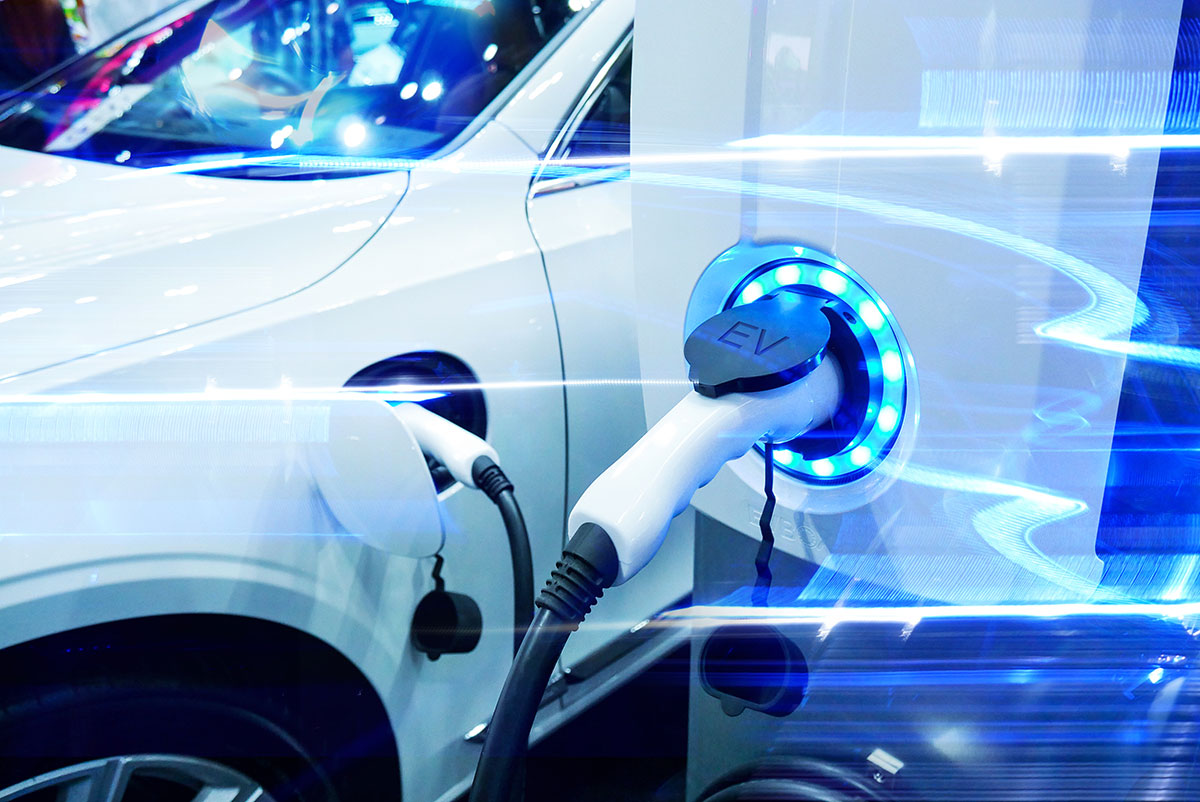The Future of Electric Cars: A Revolution in the Automobile Industry

Electric cars (EVs) are no longer a vision of the future; they are here and rapidly transforming the global automobile industry. With advancements in technology, a growing focus on sustainability, and increasing government support, EVs are set to dominate the roads in the coming years. Here’s an in-depth look at the future of electric cars and their impact on our lives:
1. Rapid Technological Advancements
The EV industry is witnessing remarkable technological breakthroughs. Innovations in battery technology, such as solid-state batteries, promise to enhance range, reduce charging times, and improve safety. These advancements will make EVs more practical and accessible to the average consumer.
2. Environmental Benefits
Electric cars are at the forefront of the fight against climate change. By producing zero tailpipe emissions, they significantly reduce greenhouse gas emissions compared to traditional internal combustion engine (ICE) vehicles. This shift is critical for achieving global sustainability goals and combating air pollution.
3. Cost Reduction and Affordability
The cost of manufacturing EVs is steadily decreasing, thanks to economies of scale and advancements in battery production. Many governments also offer incentives, such as tax credits and subsidies, to encourage EV adoption. As a result, EVs are becoming more affordable for the average consumer.
4. Expansion of Charging Infrastructure
One of the major barriers to widespread EV adoption has been the lack of charging infrastructure. However, significant investments are being made to expand charging networks worldwide. Ultra-fast chargers that can replenish batteries in minutes are becoming increasingly common, addressing range anxiety for drivers.
5. Integration with Renewable Energy
Electric cars have the potential to work seamlessly with renewable energy sources. By charging EVs with solar or wind power, we can create a truly sustainable transportation system. Additionally, vehicle-to-grid (V2G) technology enables EVs to supply energy back to the grid during peak demand.
6. Autonomous Driving and Connectivity
The future of electric cars is closely tied to autonomous driving technology. Many EVs are equipped with advanced driver-assistance systems (ADAS) and are paving the way for fully self-driving vehicles. Moreover, connected car technologies enhance safety, navigation, and overall driving experience.
7. Economic Growth and Job Creation
The shift to electric mobility is creating new opportunities in manufacturing, technology, and renewable energy sectors. As traditional automakers pivot to EV production and startups enter the market, millions of jobs are being generated worldwide.
8. Challenges to Overcome
Despite their benefits, EVs face challenges such as limited range, long charging times, and reliance on rare earth materials for batteries. Addressing these issues requires continued investment in research and development, as well as the adoption of sustainable mining practices.
9. Government Policies and Global Initiatives
Governments around the world are playing a crucial role in accelerating EV adoption. Policies such as bans on ICE vehicles, investment in charging infrastructure, and research grants for EV innovation are driving the transition to electric mobility.
10. Consumer Awareness and Adoption
As consumers become more aware of the environmental and economic benefits of EVs, their adoption is expected to soar. Automakers are also offering a wider range of models, from budget-friendly options to luxury vehicles, catering to diverse consumer needs.
Conclusion
The future of electric cars is bright and full of potential. They represent a paradigm shift in the automobile industry, offering a cleaner, smarter, and more sustainable mode of transportation. While challenges remain, the combined efforts of governments, industries, and consumers are propelling us toward an electrified future. The road ahead is electric, and it’s time to embrace the revolution.





